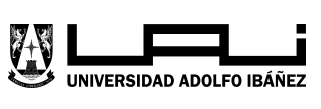THE APORIAI OF INTELLECT IN ARISTOTLE’S DE ANIMA III 4
DOI: https://doi.org/10.15691/0718-5448Vol1Iss2a246
Resumen
Referencias
Accattino, P. 2014. “Alessandro di Afrodisia interprete del De Anima di Aristotele”. Studia graeco-arabica, 4: 275-288.
Barnes, J. 2002. Aristotle. Posterior Analytics. Oxford: Clarendon Press.
Caston, V. 2000. “Aristotle’s Argument for Why the Understanding is not Compounded with the Body”. Proceedings of the Boston Area Colloquium in Ancient Philosophy, 16: 135-175.
Corcilius, K. ̶ Gregoric, P. 2010. “Separability vs. Difference: Parts and Capacities of the Soul in Aristotle”. Oxford Studies in Ancient Philosophy, 34: 81-119.
Detel, W. 1993. Aristoteles. Analytia Posteriora; übersetzt und erläutert. Berlin: Akademie Verlag.
Driscoll, J. 1992. "The Anaxagorean Assumption in Aristotle's Account of Mind", in Preus, Antony - Anton, John P. (eds.). Essays in Greek Philosophy, v. Aristotle’s Ontology. New York. Suny Press: 273-292.
Feola, G. 2015. "Ordine, intelligenza e intellegibilità del cosmo nel De Anima di Aristotele (III, 4-5)”. Methodos 16: 1-19.
Fine, G. 1984. “Separation”. Oxford Studies in Ancient Philosophy, 2: 31-87.
Frede, D. “The Cognitive Role of Phantasia in Aristotle”, in Nussbaum, Martha ̶ Rorty, Amelie (eds.). Essays on Aristotle’s De Anima. Oxford: Clarendon Press: 279-296.
Frede, M. 2008. “Aristotle on Thinking.” Rhizai. A Journal of Ancient Philosophy and Science, Issue V.3: 287-301.
Frege, G. 1892 (1980). “On Sense and Reference” in Geach, Peter ̶ Black, Max (eds.). Translations from the Philosophical Writings of Gottlob Frege, P. Geach. Oxford: Blackwell, 19803: 57-78.
Fronterotta, F. 2016. “Il significato del verbo νοεῖν in De Anima III 4”, in Sillitti ̶ Stella ̶ Fronterotta 2016: 77-96.
Gregoric, P. ̶ Pfeiffer, Ch. 2015. “Grasping Aristotle’s Intellect”, Documenti e studi sulla tradizione filosofica medievale XXVI: 13-31.
Hamlyn, D.W. 1968. Aristotle, De Anima (Books II and III, with passages from Book I), translated with introduction and notes by D.W. Hamlyn. Oxford. Clarendon Press.
Hicks, D.K. 1907. Aristotle, De Anima, with translation, introduction and notes by R.D. Hicks, Cambridge: Cambridge University Press (reprint: Hildesheim: Georg Olms Verlag, 1990).
Kahn, C. 1981. “The Role of Nous in the Cognition of First Principles in Posterior Analytics II 19”, in Berti, E. (eds.). Aristotle on Science: The Posterior Analytics, Proceedings of the eight Symposium Aristotelicum held in Padua from September 7 to 15, 1978. Padova: Antenore: 385-416.
Kahn, C. 1992. “Aristotle on Thinking”, in Nussbaum, Martha ̶ Rorty, Amelie (eds.). Essays on Aristotle’s De Anima. Oxford: Clarendon Press: 360-379.
Kal, V. 1988. Aristotle on Intuition and Discursive Reasoning. Leiden: Brill Academic Pub.
Lewis, F. A. 1996. “Self-knowledge in Aristotle”. Topoi 15: 39-58.
Lewis, F. A. 2003. “Is There Room for Anaxagoras in an Aristotelian Theory of Mind?”. Oxford Studies in Ancient Philosophy, 25: 89-129.
Lorenz, H. 2007. “The Assimilation of Sense to Sense-Object in Aristotle”. Oxford Studies in Ancient Philosophy, 33: 179-220.
Lowe, M. 1983. "Aristotle on Kinds of Thinking". Phronesis, 28: 17-30.
Magee, J. M. 2003. Unmixing the Intellect. Aristotle on Cognitive Powers and Bodily Organs. Westport ̶ London: Greenwood Press.
Marmodoro, A. 2017. Everything in Everything. Anaxagoras’ Metaphysics. Oxford: Oxford University Press.
Menn, S. 2002. “Aristotle’s Definition of the Soul and the Programme of the ‘De Anima’”. Oxford Studies in Ancient Philosophy, 23: 141-200.
Miller, F. 2012. “Aristotle on Separability of Mind”, in Shields, Christopher (eds.). The Oxford Handbook of Aristotle. Oxford, OUP: 306-342.
Mingucci, G. 213. “La cera di Aristotele”. Philosophia, 7: 87-116.
Mingucci, G. 2015. La fisiologia del pensiero in Aristotele. Bologna: Il Mulino.
Modrak, D. 1986. “Aristotle on Thinking”. Proceedings of the Boston Area Colloquium in Ancient Philosophy, vol. 2, Issue 1, Leiden-Boston- Köln: 209-236.
Morrison, D. 1985. “Χωριστός in Aristotle”. Harvard Studies in Classical Philology 89: 89-105.
Philoponus. 1991. On Aristotle On the Intellect (de Anima 3.4-8), translated by W. Charlton, London: Duckworth.
Polansky, R. 2007. Aristotle’s De Anima, Cambridg: Cambridge University Press.
Politis, V. 2001. “Aristotle's Account of the Intellect as a Pure Capacity”. Ancient Philosophy, 21: 375-402.
Ross, W. D. 1961. Aristotle, De Anima, Edited, with Introduction and Commentary, by W.D. Ross. Oxford: Clarendon Press.
Rossi, G. 2017. “Going through Aporiai. The Critical Use of Aristotle’s Dialectic”. Oxford Studies in Ancient Philosophy 53: 209-256.
Stella, F. “Le origini di νόος-νοεῖν. Prolegomeni allo studio della nozione d’intelligenza in Grecia antica”, in Sillitti ̶ Stella ̶ Fronterotta 2016: 1-24.
Shields, Ch. 2016. Aristotle, De Anima, translated with an introduction and commentary by Christopher Shields, Oxford: Clarendon Press.
Sillitti, G. ̶ Stella, F. ̶ Fronterotta, F. (eds.). 2016. Il NOÛS di Aristotele. Sankt Augustin, Academia Verlag.
Sisko, J. 2001. “Aristotle and the Modern Mind”. Proceeding of the Boston Area Colloquium in Ancient Philosophy, vol. XVI, Clearly, J., Gurtler, G.M. (eds.). Leiden-Boston-Köln: Brill: 177-198.
Von Fritz, K. 1964. Die Epagoge bei Aristoteles. München: Bayerischen Akademie der Wissenshaften.
Wedin, M. 1988. Mind and Imagination in Aristotle. New Haven: Yale University Press.
Wedin, M. 1989a. “Tracking Aristotle’s νοῦς” in Durrant, M. (eds.). Aristotle’s De Anima in Focus, London: Routledge: 128-161.
Wedin, M. 1989b. “Aristotle on the Mechanics of Thought”. Ancient Philosophy, 9, 1: 67-86.
Whiting, J. E. 2002. “Locomotive Soul: The Parts of Soul in Aristotle’s Scientific Works”. Oxford Studies of Ancient Philosophy, 22: 141-200.
Enlaces refback
- No hay ningún enlace refback.
Copyright (c) 2018 Diego Zucca

Este obra está bajo una licencia de Creative Commons Reconocimiento-CompartirIgual 4.0 Internacional.



